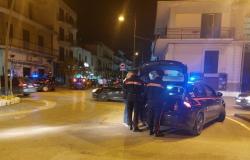The participatory security project kicks off in Udine.
The “participatory safety” project of the Municipality of Udine passes from the theoretical to the operational phase. After signing the protocol with the Ministry of the Interior and the Prefecture, the municipal administration approved the documents – operational handbook and selection notice – which will ground the measures adopted to involve citizens for the safety of the city.
“Our goal” he explains Rosi Toffanothe Councilor for Participation, Neighborhoods, Associations, Participatory Security “is that of promote urban security through solidarity between citizens, institutions and law enforcement. Thanks to the observation activity of one’s neighborhood of residence we are able to obtain greater prevention and safety but at the same time Let’s cement the community spirit. Residents will increase their awareness of belonging to a community.”
The vademecum is the document that delivers the provisions set out in the protocol are operational, illustrating what the neighborhood observation activity consists of, the objectives of the project, the interested parties, the prerogatives of the contact person and coordinator, the subject of the reports and the relationships with the police. Inside it is clarified how the reports will work and finally what activities will not be permitted and the reasons for revoking the assignment of voluntary citizens.
“The increase in observation activity absolutely does not mean being able to replace the police forces who are the only ones responsible for guaranteeing public order and safety” continues Toffano. “The representatives and coordinators will increase security and vigilance by creating and maintaining an attentive community, exchanging useful information to prevent criminal events”.
The activity of monitoring will be carried out by the representatives of the neighborhood groupsthe coordinators of the contact persons and the responsible deputies of the police forces and the local police.
The contact persons and coordinators.
Volunteers will be able to apply by responding to the selection process announced by the Local Police via the specific notice, it will be published in a few days and will remain open until April 30th. Candidates will have to meet some specific requirements and pass the selection by a commission chaired by the Local Police Commander, in the presence of a responsible officer competent in neighborhood matters and a psychologist. The selected citizens they will have to participate in a training courseacquiring the ability to recognize the situations to be monitored and only subsequently will they be able to be actively involved in the observation activity.
Among the contacts identified, the Local Police will choose the so-called Coordinators, who will act as a link between the contacts and the Local Police. The coordinators will receive reports from individual volunteers in the area and, after evaluating them, will forward them to the Local Police.
“Both the Representatives and the Coordinators foreseen by the protocol will be subjected to adequate training, so as to be able to discern what to report and how to proceed in appropriate cases,” explained Toffano. “This is essential to ensure that the necessary in-depth analysis of individual cases proves fruitful and translates into an effective advantage for the safety and well-being of citizens”. “It is not allowed – the Councilor clarifies in conclusion – that the role of citizens should cross over into any form of patrolling, neither collective nor individual. This is also to guarantee everyone’s safety.”
The activity.
Citizen volunteers will be able to carry out activities of mere observation with respect to facts and circumstances that occur in one’s neighborhood of referencewith the aim of reporting them to the institutions and law enforcement agencies. These are not emergency reports: for those the single number 112 remains valid. Furthermore, there is no possibility of intervening directly in relation to an event that one happens to witness. Once the contact person has observed a certain fact, he can report it to the coordinator, who will forward the report to the police.
The notices from citizens will exclusively concern: suspected episodes of drug abuse, people in a state of confusion and evident difficulty, significant situations of danger and disturbance to public peace, acts of vandalism, presence of dangerous obstacles on communication routes, presence or possible suspicious escape of means of transport or people clearly suspicious, suspected bullying, undue use of public spaces, presence in a public place of cars, motorbikes or bicycles suspected of being stolen. As regards the presence of people in difficulty or without a fixed abode, the Social Services of the Municipality will also be involved.
The reports will be forwarded by the coordinators to the local police offices via email [email protected]: the police officer will interface with the police force managers if the reports lead to the need for their intervention. The use of photos and videos, if the representatives use messaging systems to inform the coordinators, must concern exclusively the monitoring of the neighborhood and must be limited to mere “technical” information. The individual contact persons will only be able to send the coordinator the information they deem appropriate and any extra information will be avoided, as well as, as explicitly specified, messages of best wishes, greetings and confirmation of receipt. All citizen volunteers involved will be held to the utmost confidentiality regarding the information acquired in their activity.
Their scope will be limited to this type of activity. The following will not be the subject of activities related to “Participatory Security”: investigations on people, stalking and questions, patrols. The representatives will not be able to take personal and imprudent initiatives and that’s it explicit ban on the use of uniforms, emblems and symbols attributable to police forces, armed forces or state bodies as well as references to political and trade union movements, as well as private sponsorships. In fact, the Local Police will be able to revoke any type of assignment if behavior that does not comply with the regulation is highlighted.
After the actual start of the project, this will be subject to a six-month trial periodat the end of which the data will be analyzed and any improvements or additions will be evaluated.
Do you want to remove national ads?
You can subscribe to only €1.10 per month by clicking here
Already a subscriber?
You can log in by going to the section Login from the site menu or by clicking here





